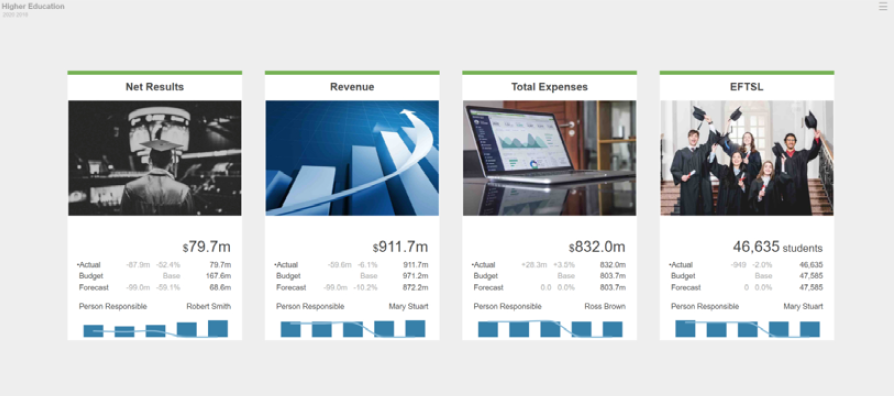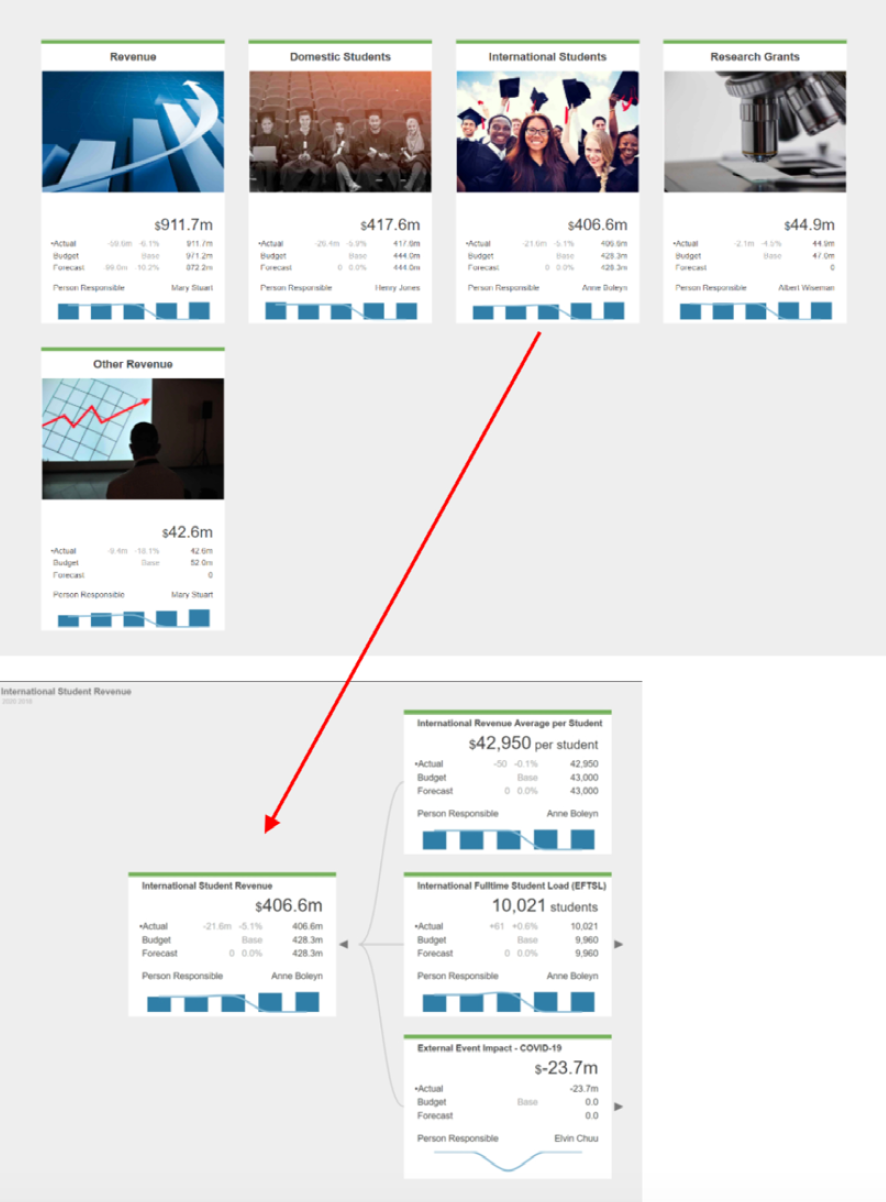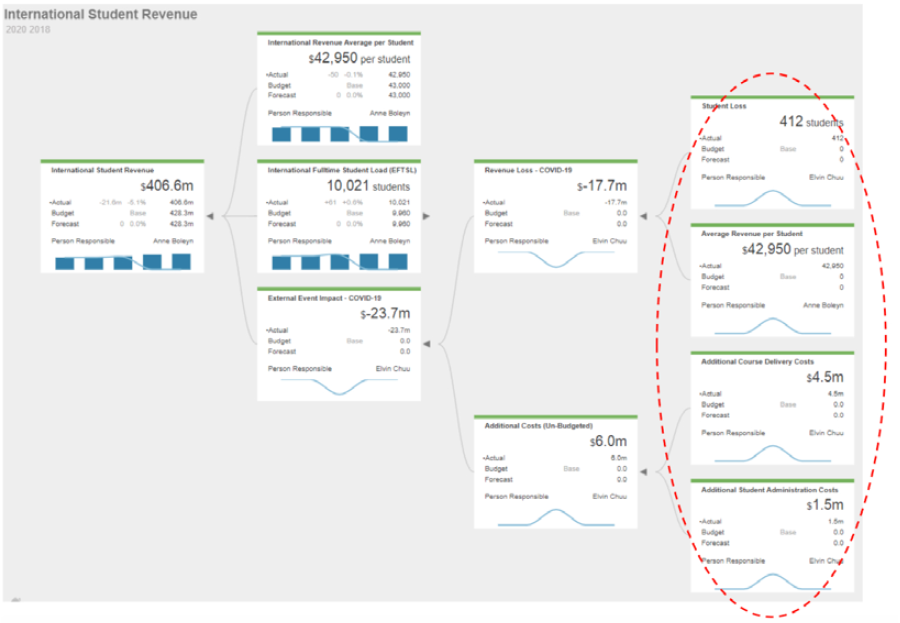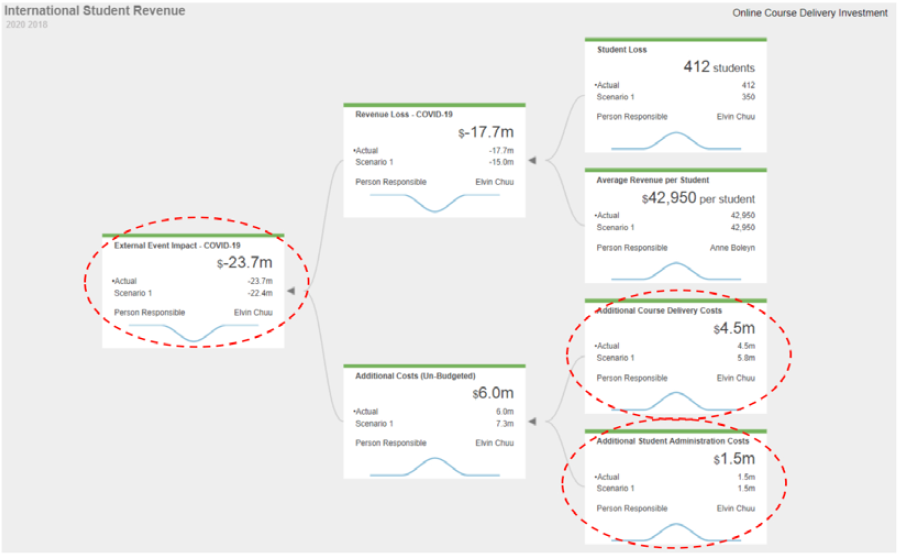The rapidly developing impacts of COVID-19 (Coronavirus) on businesses and government has resulted in a reactive response to dealing with this crisis. While this is an expected reaction given this unprecedented event and the rapid spread of the virus, it is time to start looking at COVID-19 as an ongoing influence on business, that will impact and affect us for at least the next twelve months. We now need to make decisions to reprioritise business operations in order to work as effectively as possible. This is an opportunity to shift from reacting to pro-active planning, minimising and managing revenue disruption and increased costs.
Higher Education in Australia is one of the sectors that has been significantly impacted by COVID-19, with travel restrictions preventing or at least delaying the return of overseas students. This has led to short to medium term revenue loss, potentially long-term student loss, increased course delivery costs (such as investment in online delivery) and additional student administration costs.
This situation can be modelled through a driver tree analysis by enabling scenario planning to simulate the impact of the various drivers to help universities and colleges make the right decisions on student retention and satisfaction, cost management, investment in course delivery channels.
Using the driver tree software tool called Concerto TM, various driver trees can be modelled and potentially be used as levers to make decisions to manage through this disruption. This type of modelling is flexible and adaptive to changing circumstances making it an effective tool for proactive analysis to make the best decisions.
The modelling starts with the Concerto™ enterprise view (scorecards pictured below) of a hypothetical higher education institution with the three key drivers that impact ‘Net-Results’ (profitability):
- Revenue
- Total expenses
- EFTSL

When drilling down further into ‘Revenue’ drivers (scorecards of Revenue’s drivers expanded below), particular attention is directed to the volatility of ‘International Students’ numbers, we can now further analyse the ‘International Students’ drivers (value driver tree indicated below):

In the simple example depicted below, the impact of COVID-19 can be modelled using a number of key drivers:
- Student Loss,
- Average Revenue per Student,
- Additional Course Delivery Costs, and
- Additional Student Administration Costs

There may be more drivers that are required, and each one will have its own unique influences, controls and factors – all of which can be modelled giving a greater level of detail and granularity.
In this model, we can develop scenarios that can compare cost and impact. In the example shown below, there is a scenario where the investment in more online teaching capability/ capacity helps to reduce the effect of student loss. Taldng a closer look of these drivers, we can see if there is an increase in investment for online course delivery from $4.5m to $5 .8m (Scenario 1), it will result in a reduction in student (and revenue) loss from 412 to 350 students this will have a knock-on effect reducing the impact of COVID-19 from a loss of $23.7m to $22.4m.

This type of modelling approach and scenario planning is easily accessible and quick to develop. It provides visibility and versatility as it can be easily changed and adapted to new developments and changing circumstances.
Higher Education administrators now have a tool to help them enable and facilitate investment and business decisions during this time of unprecedented disruption and uncertainty. This type of proactive forecasting using Concerto has the potential to increase visibility for their institutions dealing with the longer-term impact of this virus.
Authors:
Mark Dougall is the Managing Director of SPICAE a consulting firm specialising in business improvement and optimisation. He has worked with clients in a range of sectors to help them extract value and improve performance. Email: mdougall@spicae.com.au
Greg Hill has held numerous Executive JCT based roles across a wide range of industries, with considerable experience in the Higher Education sector, and has often worked alongside Business Executives to help them deliver their strategies, through the use of appropriate Business Applications and Architecture, and is a regular speaker within the ERP community through his delivery of presentations at some of the major user groups and delivering industry-based lectures to Higher Education Students. Email: greg@transformupconsulting.com.au

